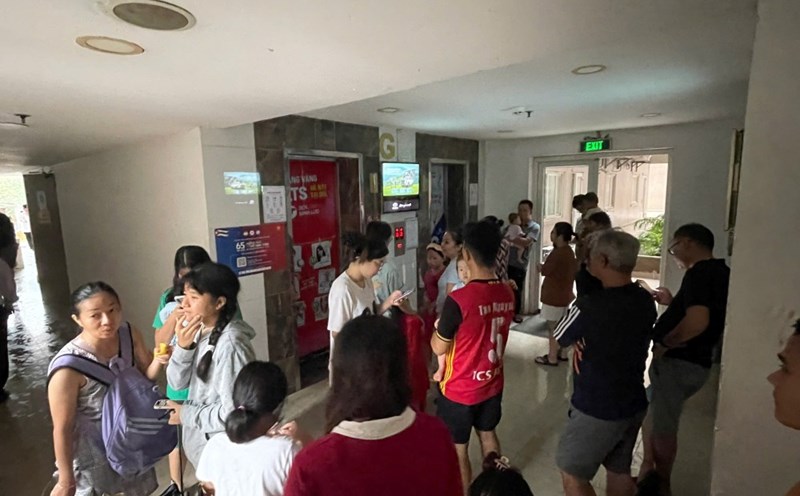The Ministry of Construction is soliciting opinions from ministries and branches on the Draft Resolution of the Government related to the mechanism of controlling and curbing real estate prices, focusing on three main groups of solutions: transparency of transactions through the establishment of real estate transaction centers and land use rights managed by the State; home loans policy; and appropriate price commercial housing development policy.
Mr. Nguyen Quoc Hiep - Chairman of the Vietnam Association of Construction Contractors, Chairman of GP Invest - said that this is an effort of the Ministry of Construction to implement the Prime Minister's direction in managing the real estate market and contributing to reducing housing prices.
However, according to him, to stabilize the market and reduce prices, it is necessary to apply many comprehensive solutions, the most important of which is to balance supply - demand and control price components.
He commented that the Land Use Rights and Real Estate Transaction Center is just an organizational management measure, not directly affecting supply - demand or market prices. According to him, the Center should act as a management unit, grasping market information to propose policies, instead of directly implementing procedures. If it is a State management agency, the Center will be an "extended arm" of the Ministry of Construction, supporting market monitoring. If operating under the model of an independent accounting enterprise, it will be very difficult to ensure effective management.
"The Center should lean towards macro-management, grasp price developments in each region to make appropriate regulatory recommendations; if established, it should increase the burden of procedures, then it should not be" - Mr. Hiep emphasized.
For businesses, Mr. Hiep said that if all transactions are forced to go through the State Center, it will lose flexibility, increase costs and prolong the transaction process. Currently, most real estate companies have their own trading floors according to the law on housing and real estate business; at the same time, the intermediary trading floor system is operating widely, supporting the consumption of goods and serving customers well. Therefore, it is necessary to clearly identify which management center is at which stage to avoid overlap, helping the market operate effectively.

Regarding the proposal to tighten the lending limit - up to 50% of the contract value for second-ghichers and 30% for third-ghichers or higher, Mr. Hiep said that this is a policy that shows efforts to limit speculation and curb unusual price increases.
However, implementation in practice will face many difficulties, because buyers can own houses in many different provinces, borrow from many banks, causing difficulties in management, even with national data systems.
He also pointed out that the determination of a second home does not have clear criteria. Accordingly, the two 70 - 80m2 apartments are completely different with two villas. This measure only affects the group of speculators using loans, while the group of speculators with cash is still not affected. He warned that information about credit tightening can affect buyers' psychology, slowing down consumption in the context of the market showing signs of recovery.
Regarding the policy of requiring localities to have at least 20% of the total number of commercial housing construction projects expected to develop in the period of 2026 - 2030 to build "appropriate-priced commercial housing", Mr. Hiep said that if effectively implemented, it will contribute to increasing the supply of affordable commercial housing.
Sales management is an issue that needs to be focused on. In the context of a shortage of affordable housing supply, having more affordable commercial housing projects can cause demand to increase sharply, attracting speculators, while there is no mechanism to clearly identify buyers such as social housing. Therefore, it is necessary to issue detailed instructions to ensure feasible and transparent policies.
Mr. Nguyen Quoc Hiep said that policy makers need to consider to come up with harmonious solutions to help the market quickly balance supply and demand. Recently, the market has had a race for housing prices when many newly opened apartment projects have reached 200 million VND/m2. According to him, to lower real estate prices, there needs to be a specific incentive mechanism for investors, from choosing projects, locations, and reasonable land prices to prioritizing land funds and costs. In return, it is necessary to regulate appropriate selling prices, thereby contributing to the formation and expansion of the average housing fund in the market.











